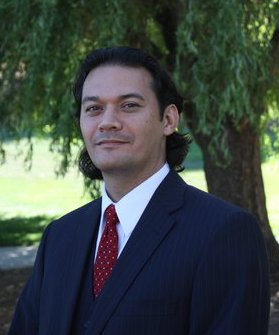Jason S. Buckingham is an attorney based in Benicia, California, who has worked with end-of-life legal issues for many years. One of his specialties includes mediation, where a legal professional helps to guide families who are experiencing an end-of-life through disputes regarding an estate. He told us a bit about his experiences.
Antal: To start off, tell our readers a bit about what you do. What is mediation? How does mediation fit in with estate planning?
Jason: Well, I am a lawyer by training. I do estate planning among other things, and one thing you see pretty often in the law profession are instances of actual and the potential for conflict among families and friends, loved ones left behind after a death. This is quite common in family property distribution cases, debt issues, and a combination of things like that. For relatives who are still in contact with each other, who have known each other their whole lives and will continue on so, mediation provides a way to resolve conflict, hopefully in a way that keeps everybody happy. One of the advantages of mediation, as opposed to litigation, that is, going to court, is mediation allows you to deal not just with finances, but with the human issues, the slighter considerations, hurt feelings and such, which are so often the more important in these situations.
Antal: What sort of situations call for mediation?
Jason: There are countless different scenarios. You have to think, there are sometimes dozens of different lifetimes of histories and issues wrapped up in these situations, they can be very emotional. Sometimes people just want to be difficult, sometimes there are clashes of personalities, sometimes people stake claims to the moral high ground and start blaming each other. Now disputes can be solved a number of different ways. In the court systems, all parties lose control, and sometimes everyone is unhappy with the outcome. Sometimes people can even be right about the legal situation, but the judge might not see it that way. And for such intense personal issues, litigation isn’t always the most attractive way to deal with death, not to mention the expense, the time, the stress. You lose all control when you go into litigation, and it’s up to the judge and the jury. Mediation is private and less expensive, and can be entered into before litigation. The primary advantage is that the people involved are running the show, and it is the mediator’s job to focus on what will make the different camps within the family closest in alignment, where are the common problems and the common grounds that people face. The difference between mediation and litigation is night and day.
Antal: So how does an effective mediation take place? What do you get going into mediation?
Jason: What you get, is you get all the parties together at some location, but prior to the meeting the mediator will get information from the different parties and do some research, hopefully to suss out what the really important issues. And that doesn’t mean just the big ticket items, but the emotional issues as well, the little things, which often end up being more important to resolving the whole affair than the percentages and numbers and finances. Sometimes the mediator has to shuttle between the different camps because they refuse to be in the same room together. We facilitate. We lay down ground rules such as common courtesy, people not speaking over each other, et cetera. In family situations, people really know how to push each other’s buttons, and it can get pretty volatile. As a mediator I try to keep them focused on what’s really important.
 Antal: Do you have any suggestions as to how people can avoid these clashes?
Antal: Do you have any suggestions as to how people can avoid these clashes?
Jason: To a certain degree, sometimes, they’re unavoidable. You never know how they can come about. I had one client who had five or six siblings. The parents had already passed, and they had an extensive estate: real estate, business, tons of possessions. One sibling had a real strong personality type, and basically tried to impose their will on the others. They ended up in litigation for something like seven years: seven years, and several million dollars. If they had gone to a skilled mediator before their parents’ death, maybe it wouldn’t have turned out that way. Now this was certainly an exceptional case. Most issues resolve themselves. If there is a revocable living trust, if there is an estate plan, most of the time people will honor it. We can help to cut through the personality issues, but effective planning is really the best defense against these situations. Three out of four adults don’t have estate plans, and even if they do sometimes they’re out of date, or they don’t go into the minutiae, such as the small possessions, the heirlooms, which can lead to some pretty heated disputes also. We would urge people to write things down, keep a record. If you have no plans at all, that will lead to some kind of conflict, hurt feelings, it’s almost inevitable. If your wishes are in writing they are far more likely to be honored. Update the plan at regular intervals and after significant events, such as births, deaths, marriages. If there’s nothing in writing, mediation is really your best chance for reaching an outcome that everyone feels is fair.
Antal: Do you have any final words for our readers regarding mediation or estate planning?
Jason: Well, just that because mediation focuses on who is left after a death, if a loved one dies in the midst of a dispute or with unresolved disagreements, we can’t help that. Sometimes, whether or not there is an estate plan, there will be a problem. We urge people to brainstorm solutions and focus on creative thinking, rather than drag your family or friends into court. Overall, most of my clients who are going through litigation are much more satisfied when they go through mediation instead, or at the same time. Most counties in California have court-approved mediators. Mediation can also help the grieving process. Everybody involved will be hurting in some way. Conflicts are embarrassing, but they are much, much more common than you might think. Having a mediator really helps head those off before they get out of hand.
Mediator Jason Buckingham is also a licensed attorney and real estate broker. Mr. Buckingham has nearly twenty years of practical and legal experience in real estate matters, and over seven years of legal experience in consumer, business, estate planning and probate issues. But above all, he is dedicated and passionate about helping people find solutions to their problems. You can reach his office at (707) 385-8300, and you can get more information about mediation services at http://www.jbuckinghammediation.co and http://www.facebook.com/JasonBuckinghamMediationServices.
- Here are 10 SevenPonds tips for navigating the estate planning process
- SevenPonds reviews Die$mart, by Kathy Lane and Christine Hughes, in which the offers address practical end-of-life planning

 What is Mediation? An Interview with Jason S. Buckingham
What is Mediation? An Interview with Jason S. Buckingham



 First the Wealth Gap, Now the U.S. Has a Growing Health Gap
First the Wealth Gap, Now the U.S. Has a Growing Health Gap

 Our Annual Seven Holiday Gifts for Someone Who Is Grieving, 2024 Edition
Our Annual Seven Holiday Gifts for Someone Who Is Grieving, 2024 Edition














